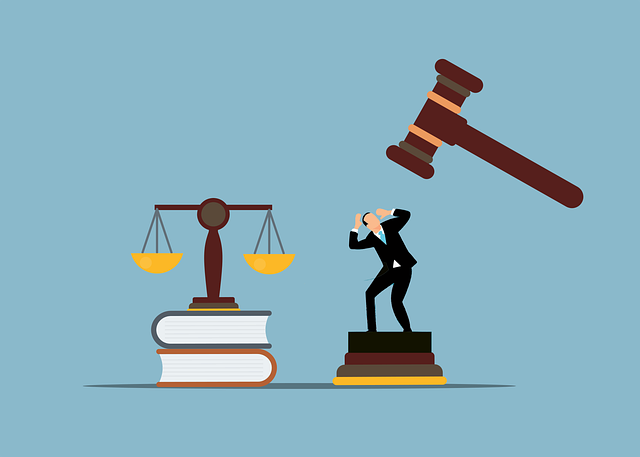In The Woodlands, Texas, criminal lawyers play a vital role in navigating complex state and federal laws to ensure fair treatment for individuals facing criminal charges. Through strategic preparation, clear communication, and meticulous detail, these attorneys advocate for clients in trials, hearings, and appeals, aiming for favorable outcomes such as acquittal or reduced sentences. They build strong cases using extensive research, evidence gathering, and persuasive oratory, while maintaining high ethical standards to preserve justice and client confidentiality. The appeals process is a crucial aspect of their work, seeking to rectify miscarriages of justice.
In the pursuit of justice, a skilled criminal lawyer in The Woodlands plays an indispensable role. These advocates navigate intricate legal landscapes, ensuring clients receive fair representation during trials, hearings, and appeals. From preparing robust defenses to upholding ethical standards, this article explores the multifaceted responsibilities of a criminal lawyer. We delve into strategies for success, the intricacies of the appeals process, and how lawyers in The Woodlands secure justice for their clients while maintaining integrity within the legal system.
- The Role of a Criminal Lawyer in The Woodlands: Navigating Legal Complexities
- Representing Clients with Advocacy: Strategies for Success in Court
- Preparing for Trials and Hearings: Ensuring a Strong Defense
- Appeals Process: Securing Justice Beyond the Initial Verdict
- Ethical Considerations for Lawyers: Upholding Integrity in the Legal System
The Role of a Criminal Lawyer in The Woodlands: Navigating Legal Complexities

In the competitive legal landscape of The Woodlands, a criminal lawyer plays an indispensable role in guiding clients through intricate legal proceedings. These attorneys specialize in navigating complex criminal cases, ensuring their clients receive fair treatment and just outcomes. They are adept at interpreting state and federal laws, which often involve intricate nuances and strict protocols. By mastering these complexities, they can effectively advocate for their clients, challenging evidence, testifying experts, and constructing compelling defenses.
A criminal lawyer in The Woodlands doesn’t merely represent individuals accused of crimes; they champion justice. They meticulously prepare for trials, hearings, and appeals, leveraging their extensive knowledge of the law and legal procedures. Through strategic maneuvering and persuasive arguments, they aim to secure favorable resolutions, ensuring their clients’ rights are protected at every step. Their expertise is crucial in a region known for its bustling legal community, where success often hinges on meticulous attention to detail and a deep understanding of criminal law.
Representing Clients with Advocacy: Strategies for Success in Court

Advocating for clients in court settings requires a strategic approach to ensure justice is served. Criminal lawyers in The Woodlands, Texas, employ various techniques to represent their clients effectively during trials, hearings, and appeals. One key strategy is thorough preparation, which involves extensive research, gathering of evidence, and understanding the legal nuances specific to each case. This meticulous process equips lawyers with a strong foundation to present compelling arguments.
During court proceedings, successful advocacy often hinges on clear communication and persuasive oratory skills. Criminal lawyers must effectively convey complex legal concepts to judges and juries, ensuring their clients’ rights and interests are protected. They use evidence presentation, witness examination, and legal argumentation to challenge the prosecution’s case, ultimately aiming to achieve a favorable outcome for their client, be it an acquittal, reduced sentence, or successful appeal.
Preparing for Trials and Hearings: Ensuring a Strong Defense

Preparing for trials and hearings is a meticulous process, crucial for any criminal lawyer in The Woodlands. It involves a deep dive into the case details, gathering evidence, and crafting a compelling defense strategy. An experienced criminal attorney will thoroughly examine all available information, including police reports, witness statements, and any relevant legal precedents. This step ensures that every angle of the client’s defense is explored, allowing for a robust argument in court.
The preparation also entails building a strong relationship with the client, understanding their version of events, and aligning their expectations with the legal process. By doing so, the lawyer can effectively communicate complex legal concepts and guide the client through the often stressful journey of a trial or hearing, ultimately securing justice.
Appeals Process: Securing Justice Beyond the Initial Verdict

The appeals process plays a crucial role in ensuring justice goes beyond the initial verdict, especially for those who believe they have been wrongfully convicted or sentenced. A skilled criminal lawyer in The Woodlands can guide clients through this intricate procedure, meticulously examining the case to identify any errors or misapplications of law during the trial. They will compile and submit compelling legal arguments, supporting documents, and witness statements to relevant appellate courts.
This process involves navigating complex legal procedures, strict deadlines, and rigorous standards of review. The goal is not merely to overturn a verdict but to secure a fair and just outcome for the client, ensuring that their rights are protected and any miscarriages of justice are rectified.
Ethical Considerations for Lawyers: Upholding Integrity in the Legal System

In representing clients, especially in high-stakes cases like trials and appeals, lawyers face numerous ethical considerations that are paramount to maintaining the integrity of the legal system. As a criminal lawyer in The Woodlands or any other jurisdiction, it’s crucial to uphold professional standards that ensure fairness, transparency, and respect for all parties involved. This includes avoiding conflicts of interest, where the lawyer’s interests may align with those of their client, potentially compromising their ability to provide unbiased advice.
The attorney-client relationship necessitates confidentiality, meaning lawyers must safeguard sensitive information shared by clients. Maintaining this trust is essential to encourage open communication and ensure clients feel secure in discussing critical details of their cases. Moreover, lawyers have a duty to avoid any form of misconduct, including bribery, intimidation, or fabrication of evidence, which can undermine the fairness of legal proceedings. Adhering to these ethical guidelines not only strengthens the integrity of the justice system but also ensures that clients receive the highest level of representation.
In conclusion, a criminal lawyer in The Woodlands plays a pivotal role in navigating complex legal systems and advocating for clients’ rights. By employing strategic approaches outlined in this article—from preparing for trials to addressing appeals—lawyers ensure their clients receive fair and just outcomes. Ethical conduct remains paramount, upholding the integrity of the legal process and fostering trust in our judicial system. Whether facing initial verdicts or navigating appeals, these strategies empower criminal lawyers to secure justice for their clients.


